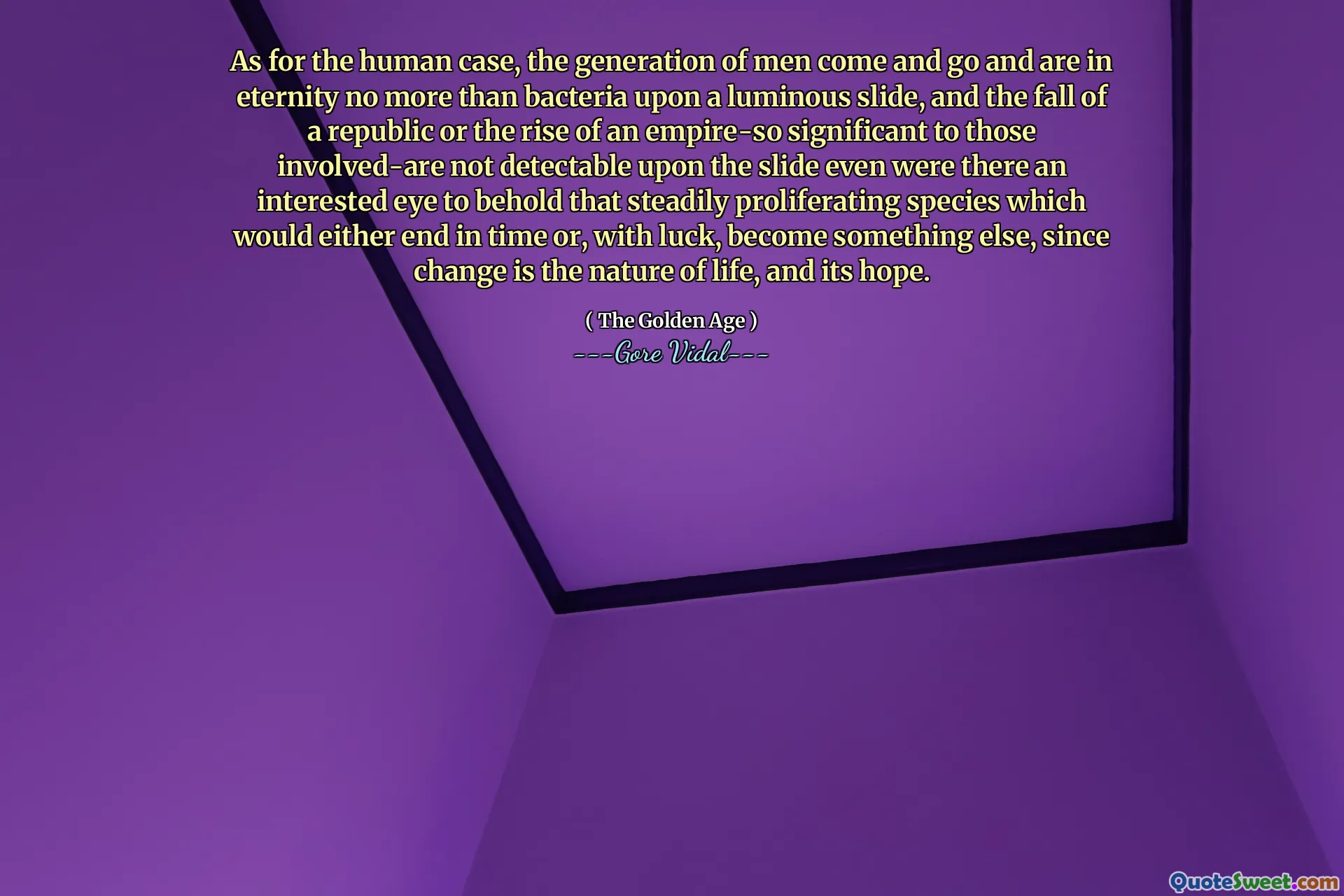
As for the human case, the generation of men come and go and are in eternity no more than bacteria upon a luminous slide, and the fall of a republic or the rise of an empire-so significant to those involved-are not detectable upon the slide even were there an interested eye to behold that steadily proliferating species which would either end in time or, with luck, become something else, since change is the nature of life, and its hope.
In Gore Vidal's "The Golden Age," the author reflects on the transient nature of human existence. He likens generations of people to bacteria on a luminous slide, emphasizing how fleeting human achievements, such as the rise and fall of empires, are when viewed from a broader perspective. These events, while monumental to those living through them, become insignificant in the vast timeline of history.
Vidal suggests that change is an inherent characteristic of life, hinting at the inevitability of transformation over time. The fall of a republic or the establishment of a new order may seem crucial in the moment, but ultimately, they are just parts of a continuous evolutionary process. The hope lies in the possibility that some forms of existence might evolve into something greater, reinforcing the idea that change is not only constant but also essential for progress.






